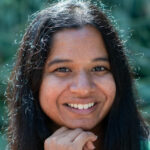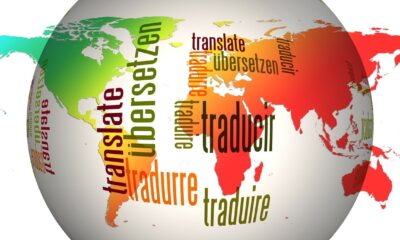Local Perspectives Program
How subtle changes in educator language can drive inclusion and engagement in STEM and beyond
In this episode of CivicSciTV’s “The Civic Science Perspective,” host Diya Dwarakanath explores cognitive psychology with Professor Erica Kleinknecht O’Shea from Pacific University. They discuss how language and educational practices impact children’s cognitive development and social essentialism. Professor Kleinknecht explains the Rhodes et al paper which describes how subtle linguistic shifts, like asking students to “do science” instead of “be scientists” can significantly influence children’s engagement in science.
Professor Kleinknecht describes her innovative classroom project where students create children’s books addressing social issues like sexism and racism through intentional but natural language patterns. Despite the challenges, students find the project rewarding and recognize their capability to produce meaningful work. She explains that “parents’ language impacts children’s choices.” Prof. Kleinknecht suggests that expanding community feedback could enhance the project’s impact and highlight the need for better psychology education in high schools.
The episode concludes with Professor Kleinknecht encouraging educators to adopt project-based learning approaches, making psychology and STEM subjects more accessible and engaging. She states, “If you’re thinking about doing it, just go for it!” This conversation offers valuable insights into how language and educational practices shape children’s cognitive and social development, advocating for a more practical and inclusive approach to teaching psychology and STEM.
Chapters
0:00 – About CivicSciTV
0:16 – Show intro
0:27 – Guest intro
1:56 – Definition of psychology
3:24 – Kleinknecht’s take on Rhodes et al study
8:14 – Power of words
12:00 – Classroom project
17:20 – Community feedback
19:02 – Context used by students
20:49 – Not enough feedback from parents
21:30 – Book example
25:00 – Let’s do science
25:52 – Surprising lesson learned
28:00 – Actionable advice for educators
31:34 – Engaging the public
33:58 – The role for the public
36:09 – Better preparing teachers
Additional Readings
Prof. Erica Kleinknecht O’Shea, Pacific University – https://www.pacificu.edu/about/directory/people/erica-kleinknecht
Children’s books written by cognitive development psychology students – https://sites.google.com/pacificu.edu/butterflyeffectcollective24/home
Anchor paper/research finding:
Asking young children to “do science” instead of “be scientists” increases science engagement in a randomized field experiment, Rhodes, M. et al, 2020
https://www.ncbi.nlm.nih.gov/pmc/articles/PMC7211969/
Good meta review of public psychology
Public Psychology: Introduction to the Special Issue, American Psychologist, APA, 2021
https://psycnet.apa.org/fulltext/2022-28577-001.html
—
Search for more insights on the Civic Science Media Network website featuring our reporting across video, audio and print mediums. https://civicsciencemedia.org
Diya is an independent science and engineering journalist. She writes opinion-editorials,blogs, explainers, and feature articles on various topics. Based in Portland, Oregon, Diya is an insightful writer with "a minimalist approach and an eye for detail," said a professional writing colleague. Her unique skillset is combining her subject matter expertise with her interest in furthering science and engineering communication with the public.

-
Audio Studio1 month ago
“Reading it opened up a whole new world.” Kim Steele on building her company ‘Documentaries Don’t Work’
-
 Civic Science Observer1 week ago
Civic Science Observer1 week ago‘Science policy’ Google searches spiked in 2025. What does that mean?
-
Civic Science Observer1 month ago
Our developing civic science photojournalism experiment: Photos from 2025
-
Civic Science Observer1 month ago
Together again: Day 1 of the 2025 ASTC conference in black and white
Contact
Menu
Designed with WordPress
























